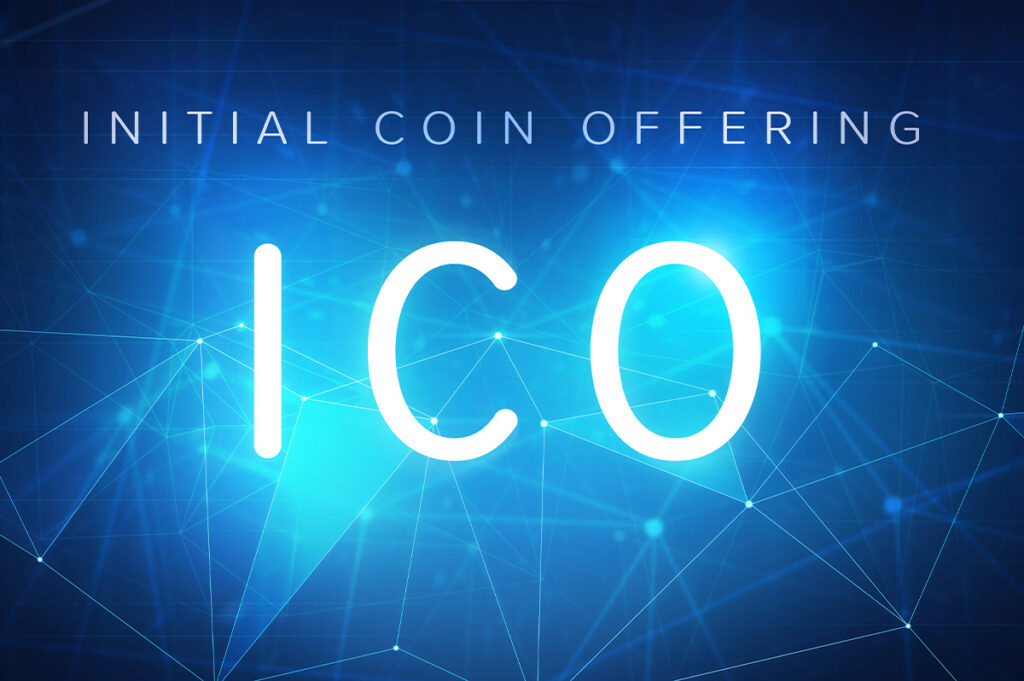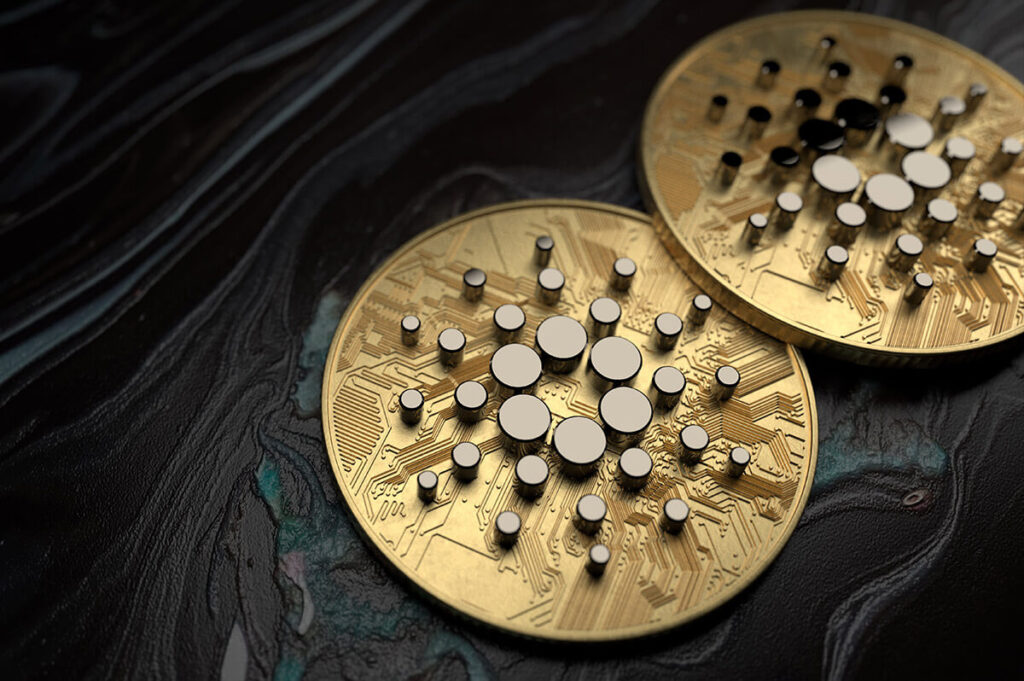Blockchain technology has created new opportunities for any businesses to develop their own cryptocurrency. This new currency can then be used as an internal payment method to grant access to the products or services the business offers. It can also represent a right to an asset or liability, or it can be used as a speculative instrument whose value is based on market expectations.
The range of applications is already extensive, and will only widen in the coming years. The use of the new cryptocurrency is determined through an initial coin offering (ICO), but there is an important stage before a public offering: the pre-ICO. Today we’ll look into the pre-ICO or coin pre-sale stage, and discuss the physics, reasoning and psychology behind it. But before we talk about the pre-ICO, let’s briefly discuss what ICOs are and how they work.
The ins and outs of ICOs
An ICO (initial coin offering) is the cryptocurrency industry’s equivalent of an IPO (initial public offering).
An ICO allows the purchase of newly issued coins or tokens at a predetermined price. Usually, this is used as a way to raise funds.
Interested investors can buy into an initial coin offering to receive a new cryptocurrency token issued by the company. This token may have some utility related to the product or service the company is offering, or represent a stake in the company or project.

What are white papers?
When new cryptocurrencies are launched, companies usually make documents called white papers available on the website of the new token. The white paper contains essential information about the offer and the ICO, including:
- what the project is about
- what need the project will fulfil when completed
- how many tokens will be retained by the founders
- how much money the project needs
- what type of currencies are accepted for payment
- how long the ICO campaign will last
The white paper is designed to encourage supporters and enthusiasts to invest in the project by offering information and building trust.
Who can launch an ICO?
This is the bit that makes many people cautious about ICOs. The truth is that anyone can launch an ICO. Compared to IPOs, there are very few regulations for ICOs, and so anyone who can access the appropriate tech can launch a new cryptocurrency.
Does this make it relatively easy to set up a scam? Yes. Crypto can offer extraordinary ROI, but there are many bad actors in the world of DeFi too. This is why thorough research and understanding are crucial for would-be investors.
Now that we have taken a brief look at ICOs let’s discuss the earlier stage: the pre-ICO.

What is a pre-ICO token sale?
The pre-ICO, as the name suggests, is a pre-sale event held before the ICO, where the tokens are sold prior to the official announcement. The pre-ICO allows investors to buy coins/ tokens before a public ICO campaign is set up.
Pre-ICOs are usually conducted to raise a small amount – usually about 10% of the total fund – from angel investors. The tokens are sold at a lower price during the presale, and a considerable bonus is allocated to early investors for showing their interest in the project in the initial stage.
This enables the company to raise funds for product development, and particularly for the ICO campaign. Buyers can take advantage of bonus schemes and gain a significant ROI if they sell their crypto tokens for a higher price later when demand goes up.
The fundraising target for the pre-ICO sale is much lower, and the tokens are much cheaper in this initial stage. The pre-ICO is usually conducted according to a pre-determined timeline and market strategy. It typically has two or three stages, and the token price is revised after each stage.
Who can participate in a token pre-sale?
Pre-ICOs might sound like an easy way for people to get in on a great thing early, but in fact, it’s not that simple. Pre-ICOs are commonly opened to a limited number of investors and can finish in as little as a few seconds.
The pre-ICO sale usually happens a month or two before the ICO, so only those who stay up to date with the latest news are able to participate.

Why do investors like pre-ICOs?
As mentioned before, there can be several bonuses for investors participating in a pre-ICO. Obtaining tokens at a significantly better price is one of them. Presales often include bonus conditions and, depending on the token, can yield a significant return on investment.
Benefits of the pre-ICO for token creators
The general objective of the pre-ICOs campaign is to attract genuine angel investors to fund the project. If, say, 10% of the total amount is raised, then that amount is used to further execute the project: building up the infrastructure, hiring new team members, or accomplishing other steps in the roadmap. Some companies also utilise the funds for paid promotion to attract investors and further strategic management.
The pre-ICO sale can be instrumental in developing the product and letting it reach its goals before the public offering.
Downsides of pre-ICOs for investors
The biggest downside for the investor is that the new token is an unknown quantity. There is no way to tell if the new currency will take off or crumble. Cryptocurrencies are highly speculative instruments and can yield considerable profits and losses. This is why angel investors thoroughly examine whitepapers and coin mechanics before investing.
Downsides of pre-ICOs for token creators
One unpleasant side effect of ICO presales is that early investors or adopters tend to dump tokens as soon as they become tradeable on exchanges. They often sell the tokens at the ICO rate having acquired the tokens for less than the price of the main ICO. This way, they make substantial profits while tanking the value of the project token.
One way to ensure that does not happen is to lock early investors into a holding period. Many genuine coins have a vesting period that enables early investors to profit more significantly.

To recap: how are ICO and pre-ICOs different from each other?
The main differences between pre-ICOs and ICOs (in most, but not all cases) are as follows:
- The pre-ICO only offers a very small number of tokens for sale. The ICO offers a significantly larger number.
- The pre-ICO generally offers access to a much smaller number of people than the ICO.
- Pre-ICO tokens will typically only be released at the time of the ICO, so pre-ICO purchasers may have to wait for much longer to receive the tokens.
- Pre-ICOs are, in many cases, conducted when the technology behind the tokens is not yet fully deployed. ICOs are generally conducted at a much later stage when the project is ready for trial.
Developing blockchain technology is an expensive venture, and collecting funds in the development stage is often essential for success. If the reasoning behind the blockchain product is sound and attractive to investors, it makes it more likely that developers will be able to raise funds with a token presale.
Now that we have looked at a token public offering and pre-sale mechanics, let’s briefly touch upon what makes people buy into crypto in the first place and how this enables token presales to succeed.
Why do people buy into crypto?
Although it’s been around for over a decade, crypto is still a relatively new investment opportunity. The potential of crypto was established by the stratospheric explosion in Bitcoin value, which made more than a few millionaires. In fact, today there are more than 100,000 wallet addresses connected to crypto millionaires.
- Cryptocurrency investments have the allure of a lucrative get-rich-quick scheme and are accessible to all types of buyers, regardless of their societal or capital worth.
- Investors always seek the upside of crypto while totally dismissing its downside – volatility.
Whatever holds value is worth looking into. Robert Arnott said, ‘In investing, what is comfortable is rarely profitable.’ Investing in crypto is mildly comfortable, but nobody in the crypto space gets rich that easily. However, that’s one of the main benefits of the industry; crypto is easy and rapidly accessible, but not everyone has the knowledge and comprehension necessary to understand it fully. So if this is the case, why do they buy into it?
Investing in crypto is a social experience
Crypto is its own form of culture. Belonging to the crypto trading/investing subculture encourages social reinforcement as all investors seek a similar financial goal. This is why investing in cryptocurrencies has become a social experience.
If an individual notices all their friends and family beginning to invest in crypto, they might feel compelled to join in to avoid FOMO. Then they too will be part of the viral effect.
This effect is even more substantial when a wealthy person builds hype around a coin on social media or people hear from friends who have made huge profits on their investment by getting involved early. This is also one of the ways that token pre-sales gain traction.

What part does group psychology have to play in it?
A crypto campaign is about a greater purpose. It’s about being a part of an entrepreneurial community, but even more importantly, an innovative product or idea that holds social value. If the creative display of the campaign and the rewards or gains for the early adaptor align, then a token has everything it needs for success.
There is a whole science behind segmenting audiences, triggering behaviours and creating demand for tokens that only works thanks to crowd psychology.
The important takeaway is that when a person is alone, they will consider their own interests and try to advance them. In doing so, they behave responsibly, weighing the facts and choosing wisely. But when we are in a crowd, we are easily swayed by the opinions, desires and behaviours of others.
Research shows that when absorbed into a crowd, people enthusiastically embrace ideas they are told to accept and experience needs they never felt as an individual.
In the world of crypto, the ability to keep a cool head is the most valuable asset of all.
Sources:
https://www.frontiersin.org/articles/10.3389/fpsyg.2019.00475/full
https://www.investopedia.com/terms/c/crypto-token.asp
https://www.investopedia.com/terms/i/initial-coin-offering-ico.asp
https://www.antiersolutions.com/what-is-pre-ico-and-how-does-it-work/#:~:text=What%20is%20Pre%2DICO%20token,ICO%20campaign%20is%20set%20up
https://replaycrypto.com/pre-ico-what-is-it-and-how-does-it-work/
https://e-cryptonews.com/what-is-an-ico-pre-sale/
https://www.antiersolutions.com/what-is-pre-ico-and-how-does-it-work/#:~:text=What%20is%20Pre%2DICO%20token,ICO%20campaign%20is%20set%20up
https://icowatchlist.com/presale/
https://www.quora.com/What-is-a-pre-ICO-How-does-it-differ-from-an-ICO
https://phemex.com/blogs/how-many-crypto-millionaires-are-there
https://www.iqstock.news/n/psychology-buying-crypto-2867982/
https://www.gobankingrates.com/investing/crypto/reasons-people-invest-in-crypto/#:~:text=Cryptocurrency%20Is%20Reliable,by%20political%20or%20government%20agencies
https://www.linkedin.com/pulse/ico-anyone-psychology-crowd-marcell-nimfuehr/
